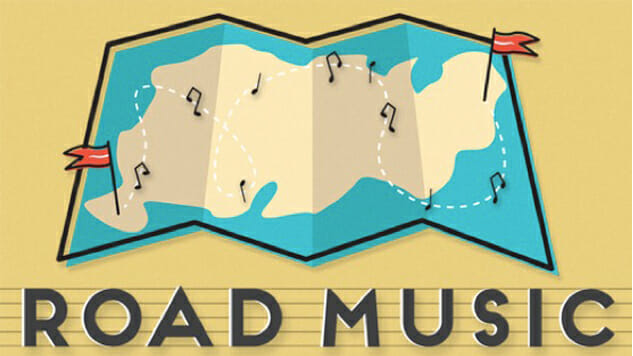Road Music, Chapter Ten: Spicewood, Texas

For this series, we’ll be following Paste’s own Curmudgeon, Geoffrey Himes, as he sets out on a massive road trip across the South, exploring musical landmarks, traditions and history along the way. Tenth stop: Spicewood, Texas.
Willie Nelson turns 84 next month. Having wrestled with pneumonia and emphysema in recent years, mortality seems to be on his mind. But in typical fashion, Nelson refuses to dodge the topic; instead he faces it down with two of the funniest songs he’s written in recent years.
He sang them both at the fifth annual Luck Reunion, a music festival held on Nelson’s ranch in Spicewood, Texas, 45 minutes northwest of Austin, near the Pedernales River. The event is always scheduled during South by Southwest to take advantage of all the talent that’s in Central Texas that week, and the ranch’s pastoral surroundings provide a welcome respite from SXSW and the mobs on Sixth Street.
Nelson bought the ranch with the money from his first few platinum albums, and when he decided to turn one of those records, 1975’s Red Headed Stranger, into the 1986 movie of the same name, he built the sets for an Old West town right there on his spread. Nelson left the buildings—a chapel, a town hall, a saloon/hotel and a barn—standing and called it Luck, Texas, a fictional 1880 town seemingly preserved in a time capsule.

Willie Nelson’s ranch, Luck, Texas (photo by Geoffrey Himes)
The newer song Nelson played that day is called “I Woke Up Still Not Dead Again Today,” a jaunty response to “the internet” that “said I had passed away.” His profile shining in the overhead lights, he delivered the lines not with anger nor with a laugh, but in the same deadpan that he brings to every song: “Up and down the road / making music as I go / they say this pace would kill a normal man / I’ve never been accused of being normal anyway / and I woke up still not dead again today.”
If the pace should ever kill him, though, Nelson has already made his funeral arrangements, and he announced them in the form of another song. “Roll me up and smoke me when I die,” he sang, with his two sons, Lukas and Micah, close enough to memorize the instructions. “Call my friends and tell ‘em / ‘There’s a party, come on by.’ / Roll me up and smoke me when I die.”
These were two of the last four songs of a long day at the ranch; they bracketed a medley of two other end-of-life hymns: the more traditional “Will the Circle Be Unbroken” and “I’ll Fly Away.” As funny as the two original songs were, they also a brave declaration that the singer would not live his life any less fully than he ever had just because illnesses and advancing age were stalking him. He seemed to be heeding the poet Dylan Thomas’s advice: “Do not go gentle into that good night, Old age should burn and rave at close of day; Rage, rage against the dying of the light.”
It would be less than accurate to say that Nelson’s musical powers are undiminished. He no longer has the lung power nor the stamina he once had, and even the shortened set had its lulls. But his phrasing is still superb and his willingness to climb out on a limb during a jazzy acoustic-guitar solo is still a wonder to behold.
And his continuing interest in new music was reflected in the smart programming for the four-stage festival. Rather than relying too heavily on his old peers, Nelson and his cohorts booked some of the brightest young talents in Americana: Valerie June, Margo Price, Parker Millsap, Conor Oberst and Aaron Lee Tasjan.

From left: Willie Nelson, Lily Meola, Lukas Nelson, Micah Nelson, Valerie June and Margo Price (photo by Geoffrey Himes)
-

-

-

-

-

-

-

-

-

-

-

-

-

-

-

-

-

-

-

-

-

-

-

-

-

-

-

-

-

-

-

-

-

-

-

-

-

-

-

-











































